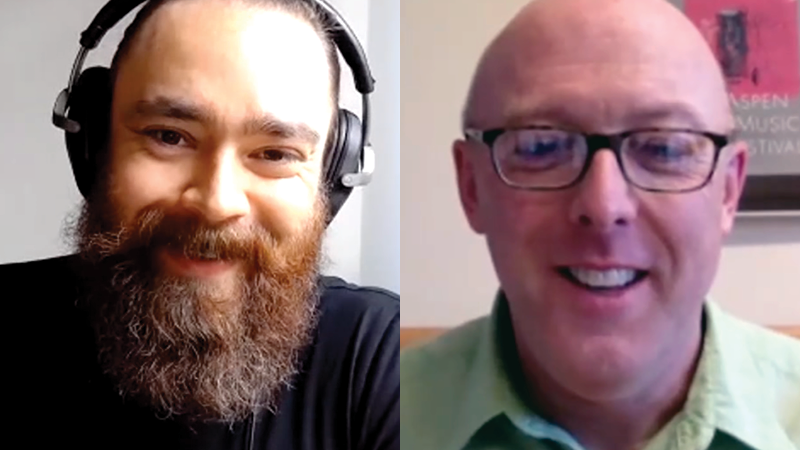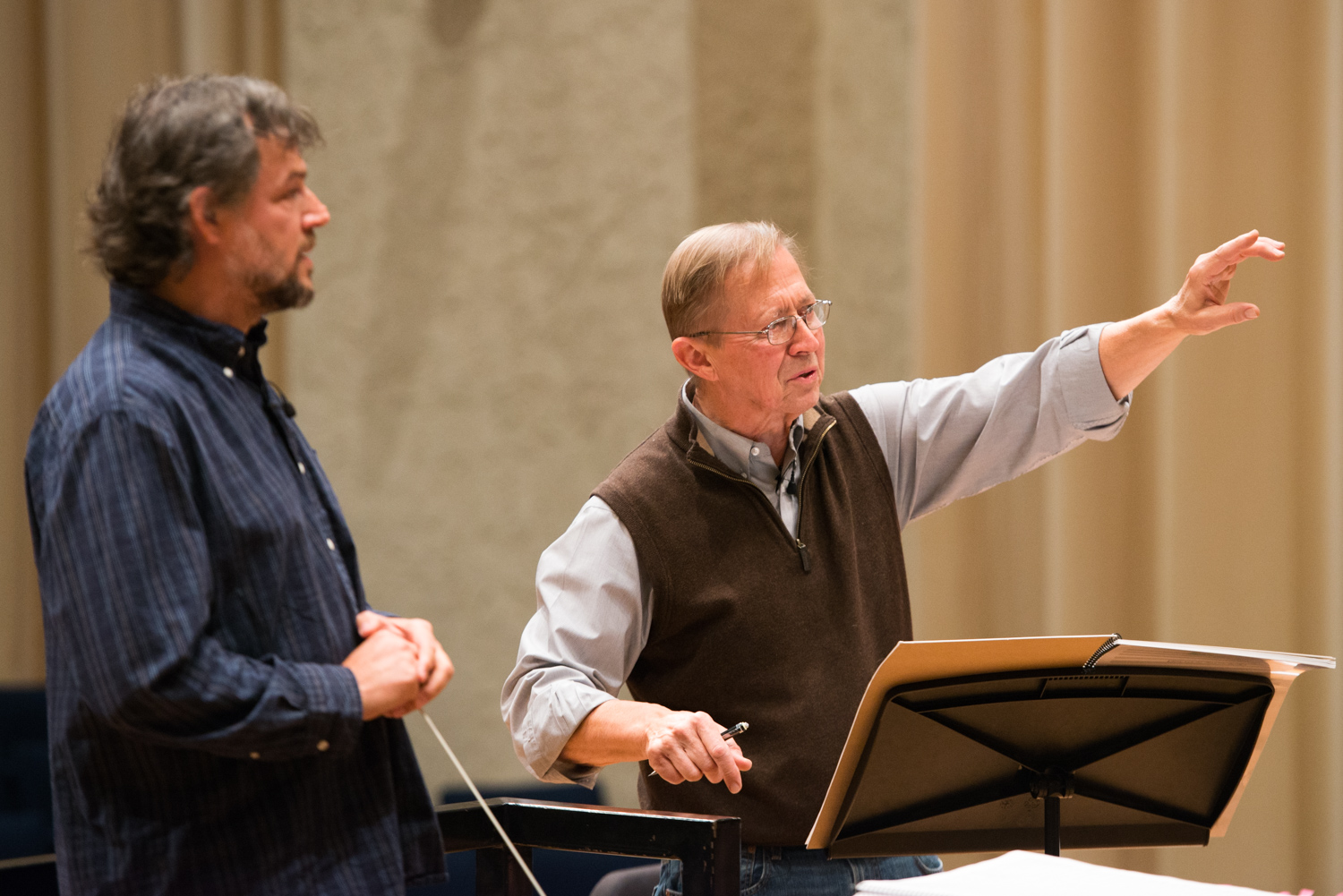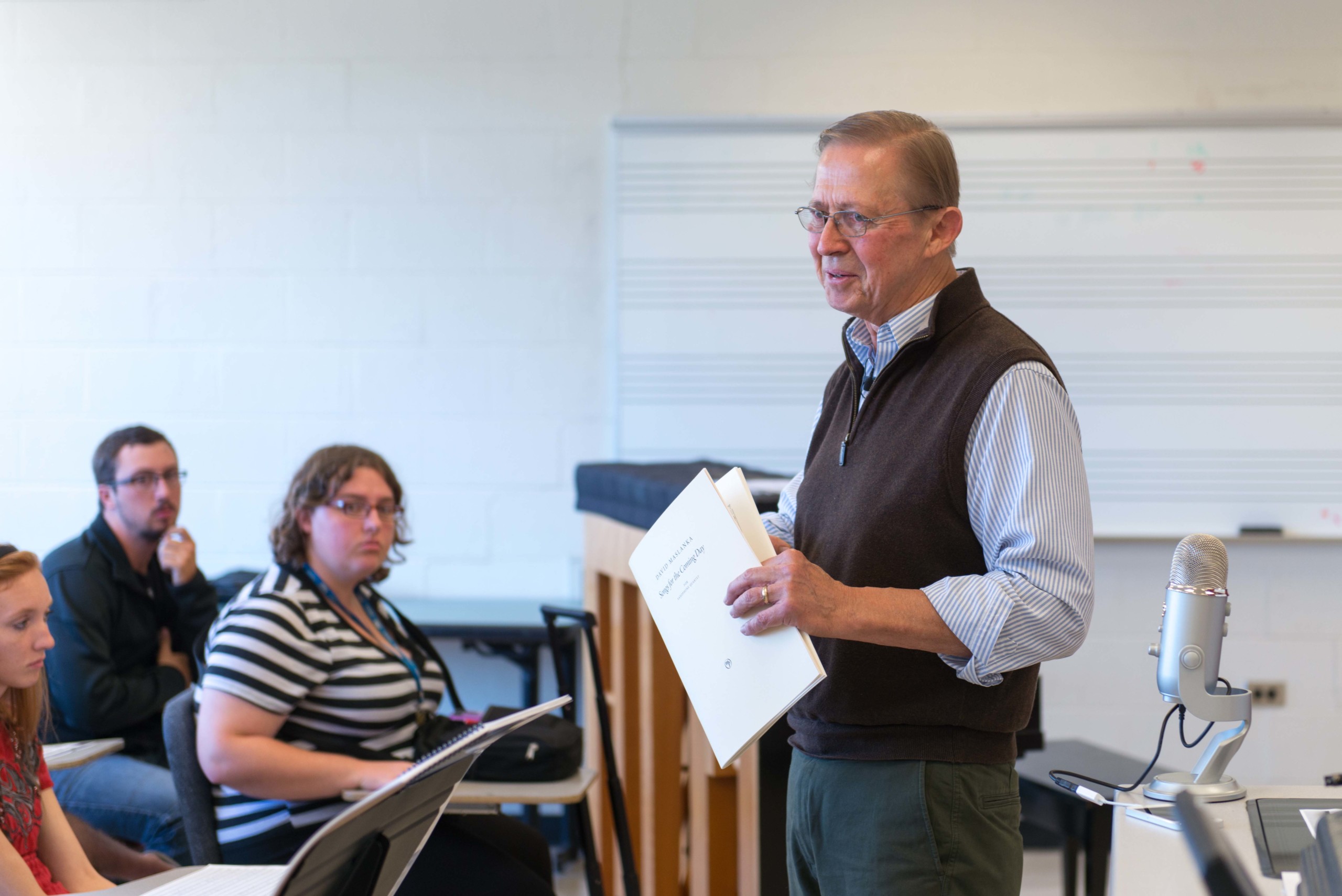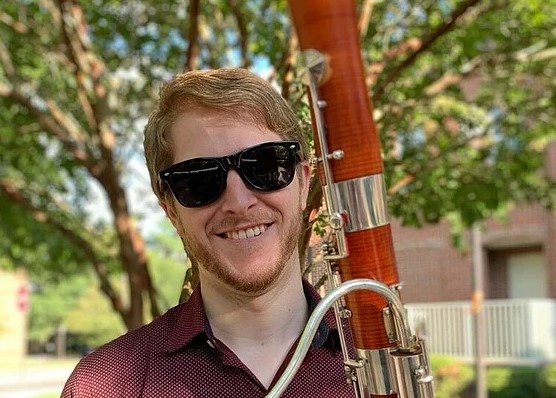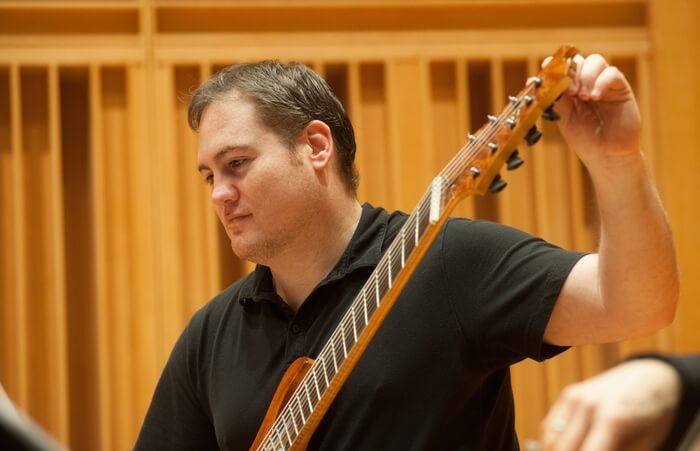The following is from an email exchange with Natasha Rotondaro, a grade 12 student from Emily Carr Secondary School in Vaughn, Ontario
Natasha Rotondaro: What is your musical background?
David Maslanka: I began clarinet studies at age nine. As a high school student I took lessons at the New England Conservatory in Boston, MA, and played in the Greater Boston Youth Symphony Orchestra. I have a Bachelor of Music Education degree from the Oberlin College Conservatory of Music where I also began my studies in composition. My Masters and Doctorate are from Michigan State University in music theory and composition. I taught for twenty years in universities in New York State and New York City, and for the past 25-plus years I have been a freelance composer, living in Missoula, MT.
NR: What do you find to be the greatest challenge of your occupation?
DM: There are many high challenges in the composing life. Probably the greatest is having to start the composition of each new piece without any clear idea of what it is. I know , of course, that a piece might be for band, or for flute and piano, but there is no way to know why a piece has to be what it is until it begins to speak its own voice. So the challenge is the ability to listen for this unknown voice, and the patience to work until that voice is exactly right.
NR: What are the common character traits of those successful in your field?
DM: I would say good to excellent basic musical talents, and particularly an easy fluency with music notation. I don’t remember not being able to read music; it just seemed obvious to me. The central things, however, are a keen interest in musical sound for its own sake, the ability to focus sharply for extended periods, and most importantly tenacity – the capacity to keep coming back to the work regardless of how you feel.
NR: What influential figures have brought you to the success you have achieved today?
DM: The most important were my major teachers. My primary teacher in composition was Herbert Owen Reed at Michigan State University. He was my teacher and mentor for five years. I worked for him as a copyist before there were computers, and as an assistant for his performances. Other well-known people whom I did not know directly but whose lives and work served as models for me include Abraham Lincoln, Carl Jung, Martin Luther King, Jr., and composers such as Beethoven, Brahms, Stravinsky, Shostakovich, Bartok, among many others.
NR: Which of the pieces that you have composed is the most meaningful to you as an individual? Have you written any pieces specifically for someone else?
DM: Each piece has its important reasons for being. By categories the most important pieces to me are my symphonies, my concertos, and chamber music. But the single most important piece is probably my Mass. The central theme of the Mass is inner transformation, the movement from self-orientation to compassion. I think every person has a deep instinctive draw to this theme. I discovered the idea of the Mass in my 20s, and began to think about composing one. I realized very quickly that I had neither the life experience nor inner awareness necessary. It took me another 25 years before I felt ready. My Mass was composed between 1994 and 1996. It was the culmination of all my thinking and feeling to that point, and has been the foundation for all my composing since. That said, I am not a practicing Christian.
NR: What inspires you to write music?
DM: I can say that the need to compose is always with me. I can’t say that I am directly inspired by any one thing, that this idea/feeling/experience is the cause of this music. All of experience is the filter through which the impulse to compose makes its way. That impulse comes from a place well beyond my conscious mind. I think of it as universal mind. This is not something apart from us but the very core of who we are. I am moved to compose when people ask me for music. It is my work to find the flow from universal mind that meets the need of the people asking for music. I guess that that can be called inspiration.
NR: How have you developed your style of music throughout your years of writing?
DM: The development of style is a thing that proceeds entirely on its own. My job is not consciously to try to invent a unique personal style but simply to listen as closely as possible to what each moment of music wants to be. This constantly surprises me. The music becomes what *it* wants to be rather than what I think it should be. I find myself constantly being brought along into new ways of thinking and feeling. This is how style develops.
NR: What does music mean to you? Do you feel your music contributes to society and the world?
DM: I think you might already have some idea of what music means to me from what I have written above. Vibration is the core of everything, and musical vibration is the element that allows for transformation at every level of our being – spiritual, emotional, physical. My music has been an important focusing element for many, many people, especially young people, as they move through transformation points in their lives. I travel a lot and will often meet people who tell me that they played a piece of mine in school ten, twenty, or even thirty or more years ago. And they don’t remember the name of the piece, or very much about the actual music, but they profoundly remember the experience and the change that it brought. This is what I know my music contributes to society and to the world.
